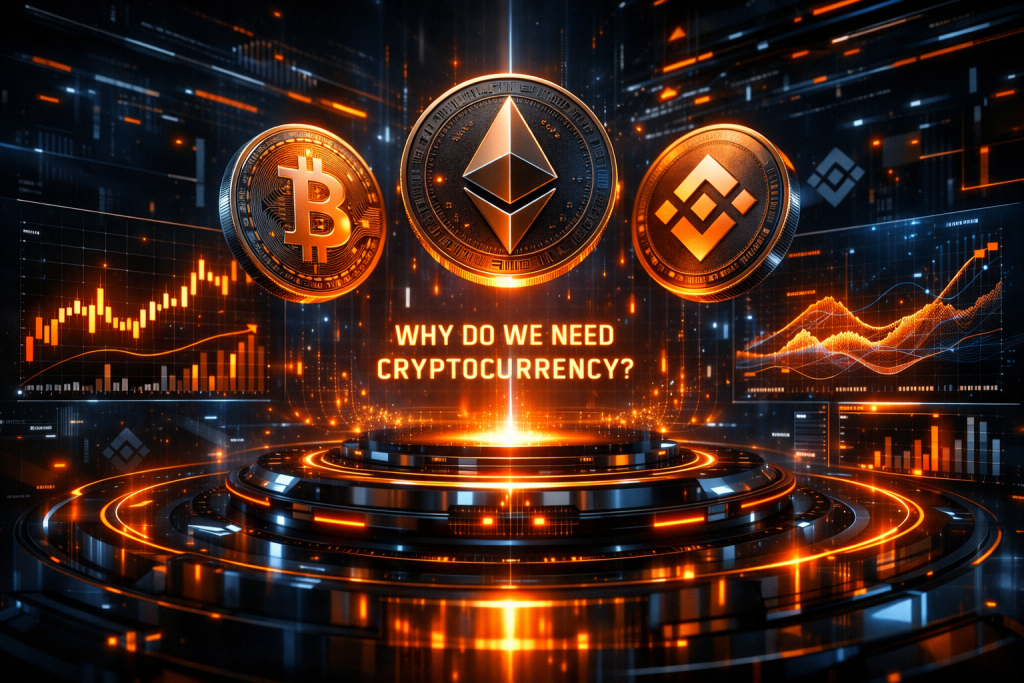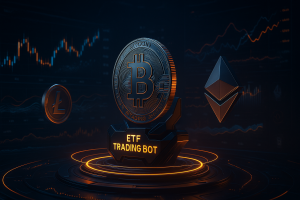Why do we need cryptocurrency?

Since the introduction of the first cryptocurrency – Bitcoin – in 2009, public perception of digital currencies has come a long way. Initially viewed as an experiment, cryptocurrencies gradually evolved into important financial tools, gaining popularity among millions of users worldwide. However, the question “What is the purpose of cryptocurrency?” continues to spark discussion.
One of the key advantages of digital assets is their decentralisation. Unlike traditional currencies, which are controlled by central banks and governments, cryptocurrencies operate on blockchain technology, allowing them to function independently of central authorities.
Owners of digital assets manage their funds autonomously, without relying on banks or regulators. This provides users with greater freedom in managing their assets and conducting transactions.
In traditional financial systems, transactions typically go through banks or payment processors, adding costs and delaying processing times. Cryptocurrencies eliminate these intermediaries, enabling users to send funds directly to one another.
In many countries with unstable economies and high inflation, national currencies can quickly lose their value. Cryptocurrencies offer an alternative store of value that is less susceptible to inflation, thanks to their limited supply.
Many people, especially in developing countries, lack access to traditional banking services. Digital assets provide an opportunity for individuals without bank accounts to participate in the global economy.
Using cryptocurrency only requires access to the internet. This accessibility allows people in remote or underdeveloped regions to send and receive funds, as well as to utilise a range of financial services.
Digital assets leverage blockchain technology, which ensures a high level of transparency and security for transactions. Each operation is recorded in a public ledger that cannot be forged or altered retroactively.
Cryptography protects transactions and wallets from unauthorized access. Hacking a blockchain is practically impossible, making cryptocurrencies one of the safest methods of storing funds.
International transfers via traditional banks can take several days and often involve high fees. Cryptocurrencies allow nearly instant transfers to any part of the world, with minimal costs.
Transactions are processed much faster than conventional international bank transfers. Depending on the network, a transfer can take anywhere from a few minutes to several hours.
For example, Ethereum not only supports simple transactions but also enables smart contracts—programs that automatically enforce the terms of an agreement once specific conditions are met. Smart contracts can be used to develop decentralised applications (dApps) that operate without third-party involvement.
Cryptocurrencies are increasingly being recognised as a new asset class for investors. They emerged as a response to the need for decentralized, secure, and autonomous financial systems. These digital currencies offer numerous benefits, including independence from banks, protection against inflation, financial inclusion, and new opportunities for investment and business process automation.
Category news: Markets and Instruments
-

Bot that trades on an exchange
A trading bot is a program capable of automatically analysing the market and executing trades based on predefined algorithms. This technology is reshaping the traditional perception of trading and makes it possible to generate income even for those without deep knowledge of economics. Developing and using such a bot requires not only technical skills but […]
-

Forex bots
The Forex market is the largest financial marketplace in the world, with daily trading volumes exceeding $6 trillion. It is open to everyone – from banks and investment funds to retail traders. Yet the key question many people ask is simple: can you really make money here? The answer is yes – with the right […]
-

Bot for trading goods
In an era of rapidly advancing digital technology, businesses are increasingly turning to automated solutions that simplify and accelerate workflows. One such solution is trading bots – programs capable of replacing or complementing human labor in the sales process. Their integration into product trading offers a number of substantial advantages that significantly enhance business efficiency. […]
-

ETF Trading Bot
Thanks to rapid technological development, investing is gradually shifting from a domain reserved for professionals to an area of widespread public interest. Exchange-traded funds (ETFs), in particular, have grown extremely popular, offering diversification, transparency, and ease of purchase. Against this backdrop, a new tool is emerging – an ETF trading bot. ETF funds, or exchange-traded […]
Latest news
-

Complete Guide to Automated Trading via API
Automated trading via API is a way to connect a trading platform to a cryptocurrency exchange so that trades are opened and closed automatically according to predefined logic, without manual involvement and without granting access to funds. On B-World, the API is used to retrieve data and place orders, while risk control and strategy management […]
-

Bot that trades on an exchange
A trading bot is a program capable of automatically analysing the market and executing trades based on predefined algorithms. This technology is reshaping the traditional perception of trading and makes it possible to generate income even for those without deep knowledge of economics. Developing and using such a bot requires not only technical skills but […]
-

DOT
DOT is the native token of the Polkadot ecosystem – a next-generation blockchain designed to unite multiple independent networks into a single decentralised infrastructure. Unlike traditional cryptocurrencies, which operate within a single blockchain, Polkadot enables different networks to interact with one another, exchange data and resources, without sacrificing security or speed. DOT plays a central […]
-

Forex bots
The Forex market is the largest financial marketplace in the world, with daily trading volumes exceeding $6 trillion. It is open to everyone – from banks and investment funds to retail traders. Yet the key question many people ask is simple: can you really make money here? The answer is yes – with the right […]

